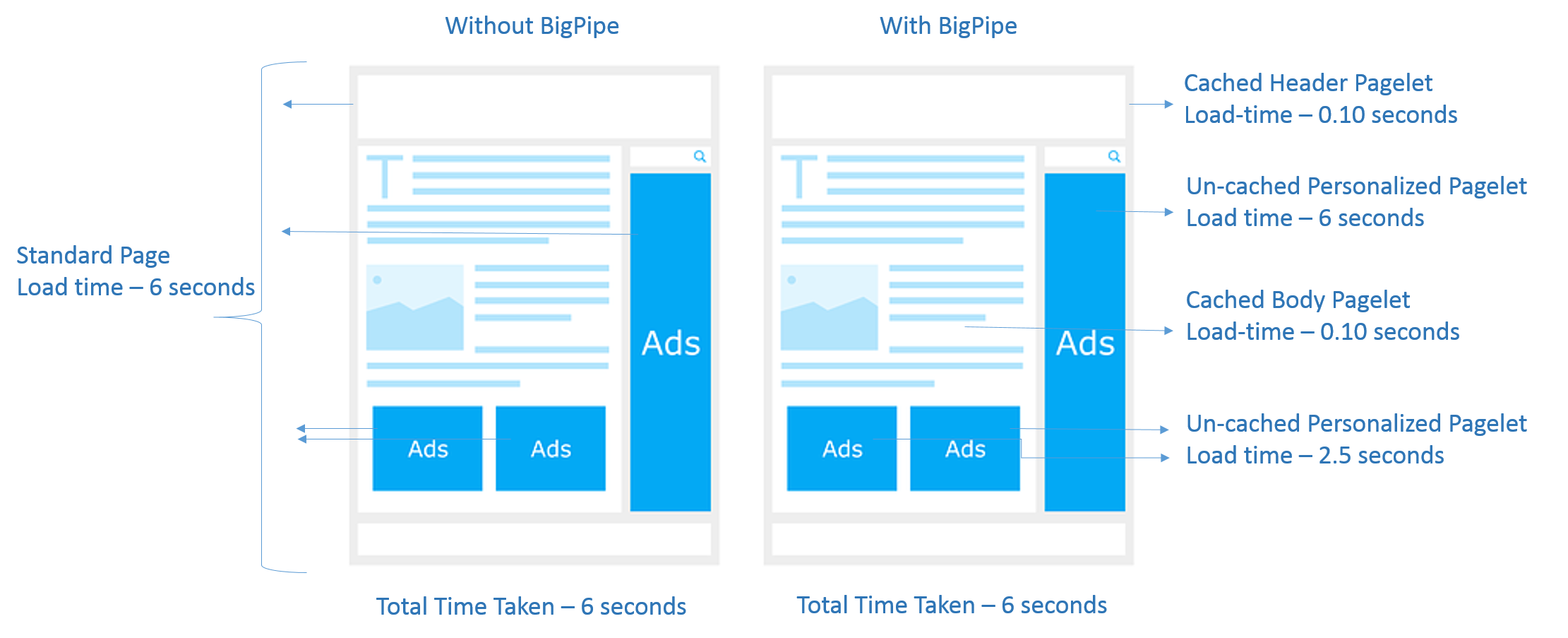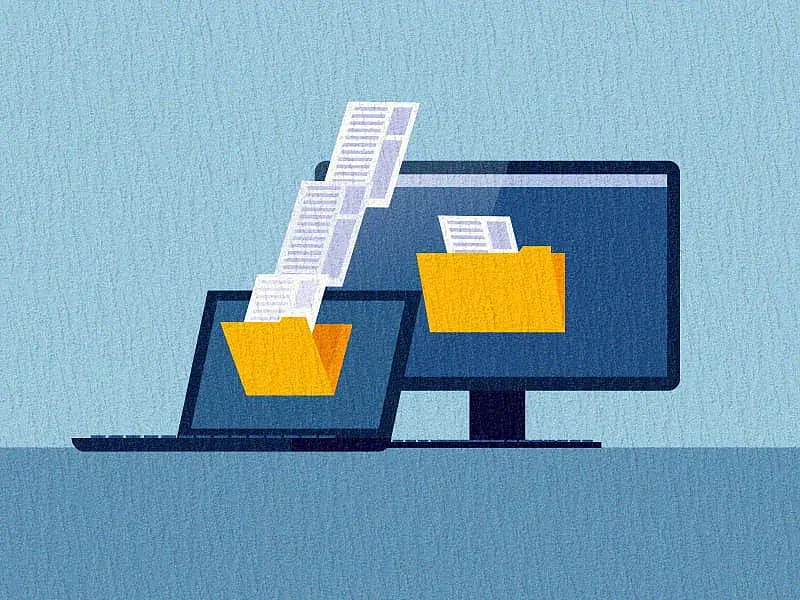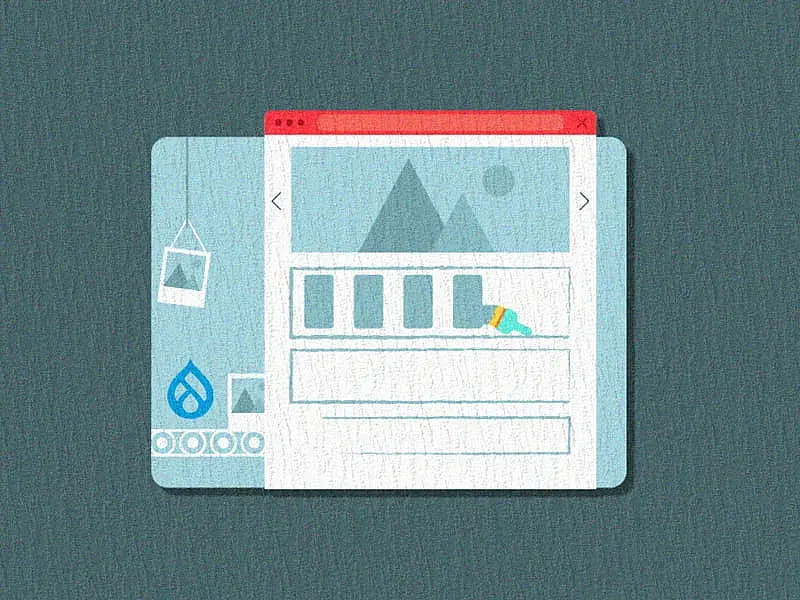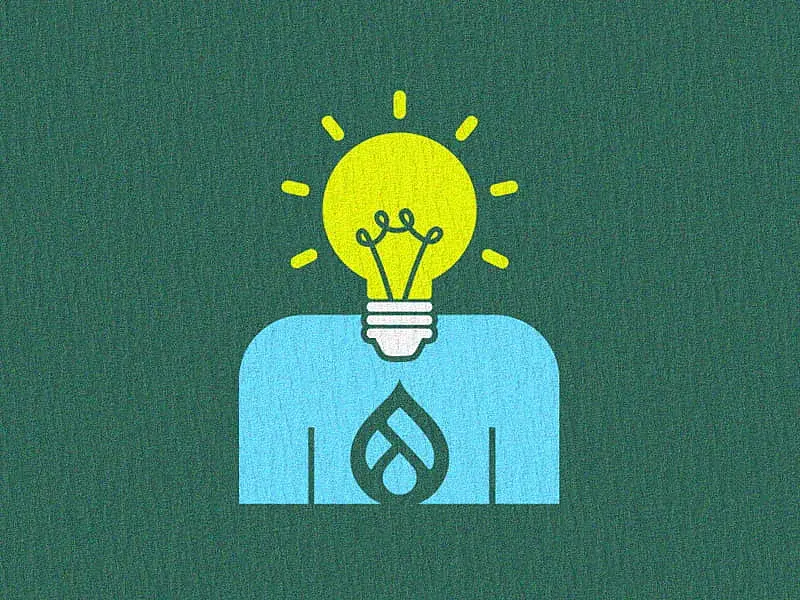Table of contents
- Drupal 8 Migrate - A Long-term vision
- Your Drupal 7 to 8 Migration Questions, Answered.
- 1. Why should I upgrade to Drupal 8 (from Drupal 7) when Drupal 9 is just around the corner? (We get this nearly every time)
- 2. We’re still stuck on Drupal 6. Help!
- 3. What performance upgrades does Drupal 8 offer?
- 4. What challenges will we encounter during a Drupal 8 migrate? What can be done to alleviate those issues?
- 5. Can we migrate to Drupal 8 and yet preserve our existing data whilst remaining GDPR compliant?
- 6. What happens to my content?
- 7. If we migrate to Drupal 8, will it break any of our existing features/modules?
- 8. Will our integrations with third-party software break on a Drupal 8 migrate?
- 9. Will our core Drupal 7 modules still work?
- 10. What happens to our custom and contributed modules?
- 11. Will our Drupal theme break on migrating to Drupal 8?
- 12. How can Drupal 8’s API-first approach benefit us?
- 13. What are the benefits of upgrading to Drupal 8?
"Should I migrate Drupal 7 to 8 or should I just wait?" This question has been constantly bothering business decision-makers when it comes to Drupal 7 to 8 migration of their website. Change can be hard and terrifying, especially at its inception. Yet, a change is what allows you to grow, evolve and progress. It can get painful to take a decision as big as a migration of your Drupal 7 (or 6) website – the one that you knew and have loved. But soon you will know you have made the most brilliant business decision, ever!
Drupal 8 Migrate - A Long-term vision
There has always been a perception that Drupal is a difficult CMS to get a hang of. Starting from end-users to developers, Drupal was considered as having a huge learning curve. Yes, with the previous major versions (before Drupal 8), the process of upgrading and adjusting to the change was harder. It was also more expensive (needed more resource time), the release of contributed modules (and necessary features) were slower and the release cycles got longer.
But with Drupal 8, everything changed.
Tom Wentworth, (SVP Product Marketing from Acquia), summed up accurately in his article that unlike a few other CMS’s, “Drupal 8 was a teardown all the way to the foundation”. Creating an upgrade based on the same old foundation would have been a much easier task for the Drupal community. But starting from Drupal 8, the Drupal community has focused on long-term sustainability and on getting people to adopt Drupal effortlessly. This called for a complete re-architecture of Drupal 8 with the adoption of Symphony for high performance, Twig for a more modern templating engine, object oriented programming for easier maintenance, modern user experience design creators and editors for rich content editing, and much more.
Drupal 8’s continuous innovation approach propels an evolution with regular (and shorter) minor releases, semantic versioning (in a ‘major.minor.patch’ format) that helps in backwards-compatibility enhancements and faster stability in modules by releasing experimental modules in core.
Your Drupal 7 to 8 Migration Questions, Answered.
Although it has been a while since Drupal 8 has been around and stable, we still get asked a ton of questions by our customers before a migration.
1. Why should I upgrade to Drupal 8 (from Drupal 7) when Drupal 9 is just around the corner? (We get this nearly every time)
I have a whole blog dedicated to this question, but if you insist, here are your benefits of upgrading to Drupal 8 now -
- Time crunch – So Drupal 9 does not release until June 2020 and Drupal 7 reaches its end-of-life by December 2021. Which means you have only a year and a half to upgrade to Drupal 9. If your website is considerably simple and needs less customizations, this is a viable option. Else, you’d better off start an upgrade to Drupal 8 now and migrating from Drupal 9 from Drupal 8 is as easy as upgrading to a next minor release.
- Living with a FOMO – That’s a term I recently learnt about – Fear Of Missing Out. Why do you want to miss out on some powerful and modern enhancements when you can migrate to Drupal 8 now and boost your Drupal website’s performance and experience? Upgrading from Drupal 8 to Drupal 9 is a cakewalk anyway!
- Just a better version – Drupal 9 is just Drupal 8 minus the deprecated code and modules. Migrate to Drupal 8 now, enjoy a better performing website and an easy upgrade to Drupal 9 (and any future versions of Drupal)
2. We’re still stuck on Drupal 6. Help!
If you’re still stuck on to Drupal 6, it's about time to move on. Today, the web has changed and so has Drupal. The Drupal community no longer supports Drupal 6 since February 2016. Which means, there will be no new Drupal modules or features to look forward to, no more bug-fixes, security updates and patches. Thus putting your website’s security at high-risk and of course depriving it of some TLC from the community. If you still want the best for your website, migrate to Drupal 9 now! Yes, you can completely skip Drupal 7. Drupal Migrate module is now included in Drupal 8 core and makes the switch easy and fast.
3. What performance upgrades does Drupal 8 offer?
Drupal 8 comes packed with performance-enhancing features and modules that can turn your website into a speedy and high performing one. Here are a few to name -
- The Symfony Framework – Drupal 8’s adoption of Symfony framework isn’t just a great move for developers but for website owners as well. Symfony offers a robust, flexible and high-performance framework that allows for easy scalability of a website.
- BigPipe Caching - It lets you segregate your page into different sections (called Pagelets) which can be rendered as they get available (Cached first). This lets you drastically improve your page’s perceived performance and speed.

- PHP7 support – Did you know PHP 7 is now two times faster than PHP 5.6 because of its new Zend engine? With PHP 7 support in Drupal 8, your websites can see a performance rise up to about 110% and reduced memory usage.
4. What challenges will we encounter during a Drupal 8 migrate? What can be done to alleviate those issues?
Challenges encountered during a Drupal 7 to Drupal 8 migration completely depends upon the complexity of a website, if it includes a redesign, the amount of content needed to be migrated and many more other factors. The first and the most crucial step towards a Drupal 8 migration is to audit your existing website. Auditing and analysing your website could be the biggest challenge if not handled well and could lead to a successful (and quick) migration when done right. If not planned well, you might run into problems where you are unprepared to handle -
- Module compatibility issues
- Might migrate old and unused modules that will increase migration time
- Unavailability of existing modules/features/themes/views/entities (in core or contrib)
- The need to rebuild and rewrite custom modules in Drupal 8. (Coz as discussed earlier, D8 has restructured itself to be able to be more future-ready)
- A rebuild/repackage of features and views
- A redevelopment of the theme – because of Drupal 8’s new and powerful templating engine Twig
How do we fix this? – Easy. Audit your website well. Get a Drupal technology partner to do a complete analysis and audit of your existing website and list out features, modules and other elements that need to be migrated. They will need to provide you with details on what needs a rebuild and what can just be easily ported. You can also use evaluation modules like the Upgrade checker which will give you a comprehensive list of migration components and an estimate of how long it might take.
5. Can we migrate to Drupal 8 and yet preserve our existing data whilst remaining GDPR compliant?
Absolutely! The reason why Drupal is so successful is because of its proactive and battle-ready Drupal community. The Drupal GDPR Compliance team project aims at providing websites with modules and features that can assist in making them GGDPR compliant. There are over 15 new modules in Drupal 8 for GDPR compliance to choose from with some modules that can be ported to Drupal 8 and some that may need a rewrite. Check here for a list of Drupal modules that help you build GDPR compliant websites.
6. What happens to my content?
Drupal understands how important content is to every organisation. With efforts from more than 500 contributors, the release of Drupal 8.5.0 brought together a stable and robust Drupal Migrate architecture. Modules like Migrate API, Drupal Migrate module and Migrate Drupal UI allows for a flexible and easy content migration from the database or sources like JSON, CSV or XML.
7. If we migrate to Drupal 8, will it break any of our existing features/modules?
The answer to this question depends on your website structure, complexity and the way Drupal 7 (or Drupal 6) was implemented on your website. Many times, there is no direct path for a Drupal 8 upgrade. Custom modules will need a rebuild and will break if simply ported because Drupal 8 is now built on Symfony framework (and OOP principles). Themes will need to be redeveloped as with the new template engine Twig, migrating your existing Drupal theme will not work.
8. Will our integrations with third-party software break on a Drupal 8 migrate?
Integrations with third-party software have just gotten better with Drupal 8. With web services in core in Drupal 8, creating RESTful APIs are easy and fast. This is invaluable in connecting with many third-party applications. Additionally, Drupal 8 has added many more integration modules to its list.
9. Will our core Drupal 7 modules still work?
Yes. Drupal 7 Core modules have made their way to Drupal 8 and some of them are even better in Drupal 8! While most of them are automatically upgraded, a few modules will need manual work if they don’t have an automatic upgrade path. Some Drupal 7 (or 6) modules are not mapped to the same Drupal 8 module. For example, the Block module in Drupal 7 is now divided into a Block and Custom Block module in Drupal 8. Nonetheless, many contributed modules in Drupal 7 are now in Drupal 8 core (like the Views module).
10. What happens to our custom and contributed modules?
After Drupal 8’s adoption of the Symfony framework and Object Oriented Programming principles, Drupal has opened its doors to wider set of developers and programmers. This also helps in building code that is more robust and reusable. But this time-saving, future-ready concept brings along some bad news too. The bad news is that most of the existing custom modules and some contributed modules will need to be rebuilt from scratch to be able to support Drupal 8’s futuristic mission. But the great part about this is from Drupal 8 onwards, any major/minor upgrade will be easy as pie.
11. Will our Drupal theme break on migrating to Drupal 8?
Unfortunately, yes it will. Since Drupal 4.7 up until Drupal 7, PHPTemplate has been the default Drupal Theme engine. But with the adoption of the Twig (part of Symfony2) for a more powerful, secure and modern templating engine, themes will need to be redeveloped. However, parts of code can be replaced as is.
12. How can Drupal 8’s API-first approach benefit us?
By the year 2020, there are going to be more than 50 billion internet connected devices. Content is now consumed via a plethora of mediums – computers, mobiles, IoTs, wearables, conversational interfaces, smart TVs… and the list keeps growing. Which means, your brand needs to interact with a lot more devices and in many more formats than just a website. Content delivery has gotten a lot more challenging.
Just so we are on the same page, an API (Application Programing Interface) is a set of rules or routines (functions or programs) that specifies how applications can interact with each other. For example, if you want to display the current weather on your website, you can invoke an API with websites that offer this service.
To be able to handle the content delivery challenge efficiently, content needs to be treated like well-structured data. Drupal’s API-first approach, lets you create an API before you build your website or mobile app. This futuristic approach allows you to turn content into services which can then interact with diverse devices irrespective of the formats. While Drupal 7, also supports the API-first approach with the help of additional modules, Drupal 8 comes built-in with the content-as-a-service model.
This is what our in-house expert Drupal Practice Head, Malabya Tewari has to say about Drupal 8’s API first approach – “Drupal 8 has taken this approach to another level and here’s why- REST module is now in core, where you can create own custom web-services using Views (which is also added in core in D8). It is easier to create custom REST APIs using the core REST module. Adding basic authentication is in core as well. You can get APIs, including JSON:API and GraphQL, for all entities - out of the box!
JSON:API for Drupal 8
JSON:API is now a part of core in Drupal 8. Quoting Malabya again from one of his sessions at a recent Drupal Camp, “JSON:API focuses on exposing Drupal's biggest strength (entities/data modelling) in a coherent manner. Simple yet sufficiently powerful for most use cases.”
13. What are the benefits of upgrading to Drupal 8?
One of the most stunning features of Drupal 8 is that you have (almost) everything you need, out-of-the-box.
- Responsive websites are not a luxury anymore, they are a necessity. All of Drupal 8’s themes are responsive off-the-rack – which not only works great with all devices also makes configuration and set up of your Drupal website a lot easier.
- A built-in, well-configured WYSIWYG editor CKEditor lets you preview and edit your content in a breeze. You also have an in-place editor that lets you edit blocks, content, menus, etc. right in the same page.
- SEO gets you noticed and out-there. With some of Drupal’s built-in powerful SEO modules, you can take your website places! Modules like SEO Checklist, PathAuto, Redirect, MetaTag, etc. are killing it!
- The newest and most powerful version of HTML, which is HTML5 is now built-into Drupal 8. It lets you embed complex input elements like audio, video, date, email, etc with ease and better functionality across all devices.
- Take your business global with Drupal 8’s out-of-the-box multilingual support. You can not only create pages enabled with language-based views, even the admin interface allows you to select our preferred language.
- Media and Media browser for more efficient media handling abilities with support of remote files.
- Media support in CKEditor is soon coming up in Drupal 8.8!
- The built-in content translate modules enables you to translate any content entity into different languages.
It has been a while, more than four years now since Drupal 8 has made its entry into the field. The best of the Drupal community worked hard for nearly 5 years to produce this masterpiece of a CMS and finally announced its arrival in November 2015. Since then, more than 150,000 Drupal websites have migrated to Drupal 8, only to find a higher performing, robust and more flexible solution. Yes, the change is not very easy but once you upgrade to Drupal 8, life surely gets easier. Reach out to an expert Drupal development company to guide you to the best possible approach towards a successful Drupal 7 to 8 migration.







